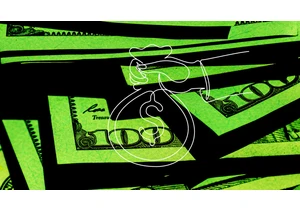Mojang, creator of Minecraft, took a definitive stand against nonfungible tokens (NFTs) earlier this week, saying it has “no plans of implementing blockchain technology into Minecraft right now.”
That’s an approach that’s contrary to what many video game makers have been taking in recent months, sometimes despite the protests of players. And it could be just the excuse a number of fence-sitters need to dodge the issue altogether.
Of course, Mojang isn’t just any developer. Minecraft is one of the industry’s biggest games. The developer is also owned by Microsoft, which further sends the message that when it comes to that company’s gaming division, NFTs aren’t viewed all that kindly.
In its statement, Mojang said it wouldn’t support NFTs because they’re “not inclusive of all our community and create a scenario of the haves and the have-nots.” That’s not too far from statements Xbox chief Phil Spencer has made about the technology in the past.
“What I’d say today on NFTs, all up, is I think there’s a lot of speculation and experimentation that’s happening, and that some of the creative that I see today feels more exploitive than about entertainment,” Spencer told Axios. “I think anything that we looked at in our storefront that we said is exploitive would be something that we would, you know, take action on. We don’t want that kind of content.”
He’s not alone. Microsoft founder Bill Gates has said NFTs are “100% based on greater fool theory,” a bubble in which overpriced assets continue to get sold at even higher prices to a “greater fool.”
Players have been quite clear when it comes to expressing their thoughts about NFTs in games. A vocal contingent feels this is just the latest way for publishers to nickel and dime them into paying more to enjoy a title— an extension of the microtransactions, loot boxes, and other monetized practices that have become part of the modern gaming landscape.
That hasn’t stopped some big publishers from leaning into them. Ubisoft, for one, has embraced NFTs; an executive at the publisher ruffled some feathers previously when he said fans “don’t get what a digital secondary market can bring to them.”
And while Take-Two Interactive Software hasn’t folded them into its portfolio of games yet due to the speculative nature of NFTs, CEO Strauss Zelnick says he doesn’t expect the company to ignore them forever.
“We’re in the entertainment business,” he says. “When there is a reset, and NFTs take their proper place as part of the entertainment economy, that’s when they become really interesting for what we do.”
Ironically, on paper NFTs would seem to be a good fit for video games. They’re collectibles and can, in games like Axle Infinity, be used to battle other players. They can also be used to generate real-world financial returns that reward the most skilled players.
The technology, however, hasn’t proven to be especially secure. Axle Infinity saw hackers steal roughly $625 million worth of cryptocurrency from the network used to process transactions, making player investments largely useless.
And NFTs themselves are hardly the hot item they used to be, particularly after the recent crypto crash. A study by NonFungible found that in the first quarter of 2022 gaming-related NFTs had a total loss of $50 million, making them the least profitable segment of the entire NFT industry from a trading point of view.
That said, Mojang didn’t dismiss NFTs with any sort of finality. The company might be eschewing the technology for the immediate future, but it also promised to pay “close attention to how blockchain technology evolves over time to . . . determine whether it will allow for more secure experiences or other practical and inclusive applications in gaming.”
In other words, if the current crypto winter is followed by an abundant crypto spring, some of the video game world’s biggest NFT skeptics might be open to rethinking their stance.
Connectez-vous pour ajouter un commentaire
Autres messages de ce groupe

TikTok is shutting down TikTok Notes—wait, you didn’t even know it existed? Well, that explains a lot.
TikTok Notes, the platform’s short-lived attempt to take on Instagram (just as Inst

Influencing has a major pay gap, and it’s not what you might expect.
A new report from Collabstr, based on over 15,0


Tech leaders often brand themselves as “disruptors”—and few fit that label more snugly than Elon Musk. In the three months since joining Donald Trump in the White House following Trump’s election,

As the weekend deadline for TikTok to find a buyer approaches, bidders for the short-video so

At Visa’s ETA Transact event on April 3, the payments giant introduced three new products designed to simplify and secure payment acceptance. These innovations—Authorize.net 2.0, Unified Checkout,

